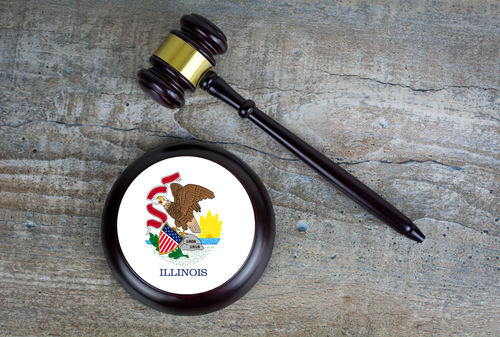Arnall Golden Greg LLP
On the 15th of November 2024 in Dallas, Texas a 27-year old social media influencer faced a 58 year-old boxing legend. Approximately 108 million people watched this spectacle. The numbers are impressive, even though they don’t quite match the Super Bowl. They show the popularity of Mike Tyson & Jake Paul. Sunday Night Football on NBC is the most popular show in the United States with around 20 million viewers. The popularity of influencers in brand advertising can be seen by anyone who uses digital and social media. Advertisements for products and services are now a common sight on TikTok and Facebook. Paid advertisements appear in most YouTube videos. Promotional ads can even be found on closed platforms like LinkedIn. Advertisers will follow the traffic as our attention shifts from traditional media towards digital and self curated channels. By engaging spokespersons with a substantial (or otherwise valued) following, brands can directly, and oftentimes seamlessly, engage a curated audience without much effort or expenditure.
Regulatory Attention and Enforcement Actions
The growth of influencer and endorsement advertising, coupled with the likelihood for consumer confusion, has piqued the interest of regulators at the Federal Trade Commission (“FTC”). The FTC raised the alarm in 2009 with the publication of the revised “Guides Regarding the Use Of Endorsements And Testimonials”. This guide was updated again in early 2024. The publication was intended to provide guidance for the brand advertising ecosystem regarding the use of celebrity, expert, and consumer endorsements, as well as related activities. In recent years, FTC has also ramped-up enforcement actions and warnings against third parties that fail to comply with the Guides and applicable law.
Disclosure, Disclosure, Disclosure
According to FTC, if a celebrity, or any other person, is paid or otherwise enticed to promote (e.g., discuss, review, wear, depict, share, or compliment) a product or service, then the relationship must be disclosed in the advertisement. Disclosure may also be required for non-monetary incentives, such as free products or services. The FTC’s basic test is: “Would it materially affect the credibility or weight of an endorsement if a consumer knew that the endorser had been compensated or incentivized?”1 The disclosure policy is intended to ensure that endorsements are honest and accurate and prevent consumer confusion or deception. Disclaimers must clearly communicate the relationship between the advertiser and spokesperson, including any quid pro-quo. As a matter of course, any failure to communicate that relationship will be deemed misleading and subject the parties to liability under the FTC Act, in addition to applicable state consumer protection laws.
Who’s Responsible?
While the burden to disclose is primarily placed upon the brand advertiser, both the advertiser and endorser/spokesperson (along with any third-party intermediaries) may be liable for any failure to comply with the legal rules. Brands must be aware of the risks and carefully monitor how they are promoting their products and services. It is important to not take the decision to hire a spokesperson lightly. Develop internal policies and procedures that govern influencer and endorsement advertising activities. Conduct internal brand due diligence and develop legal compliance and quality control policies
Develop internal policies and procedures that govern influencer and endorsement advertising activities
Adopt quality control and compliance guidelines and procedures
Train staff and implement the policies
2. Carefully evaluate and scrutinize potential spokespersons to ensure “brand compatibility”
- Brands should perform background checks and social media reviews of the potential spokesperson
- Conduct legal clearance review of related intellectual property and potential conflicts
- Develop morality clauses to address potential concerns
3. Prepare a comprehensive talent services agreement that binds the spokesperson and protects the brand
- Talent contracts should include various vital concepts such as scope of engagement, timelines, deliverables, and payments
- Additional concepts might include exclusivity, rights grants, morality clauses, and renewals
- The agreement should include all relevant brand policies and procedures that apply to the campaign and advertising activities (e.g., content clearance)
4. Ensure compliance and monitor spokesperson activities
- FTC recommends that brands have a system in place to monitor and review spokesperson content
- Brands should have the right to require content removal or correction as needed
- Take appropriate action
5. Ensure that spokespersons comply with applicable social media platform guidelines for branded content
- In addition to various laws and rules applicable to influencer advertising, brands should be aware of the guidelines and rules enforced by the social media platforms
- Platform rules should be included
- As we continue to encounter new and self-curated media with increasing frequency, the lines separating sponsored advertising from news and editorial content will continue to blur. It is important that brands are aware of the FTC’s policy objectives and priorities when developing and implementing a marketing strategy focused on influencers. A carefully crafted and successful influencer marketing campaign can make a company a household name. However, a careless promotion will likely make that same brand the subject of an article by a lawyer. Part 255.5.






